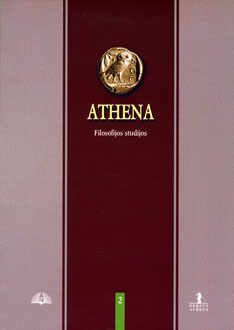Kūrybinio bendruomeniškumo prieštaringumas: nuo E. Levino ir J. Vanier iki kūrybinių klasių
Ambiguity of Creative Community: from E. Levinas and J. Vanier to the Creative Classes
Author(s): Gintautas MažeikisSubject(s): Philosophy
Published by: Lietuvos kultūros tyrimų
Keywords: Levinas; Althusser; interpellation; Vanier; imagination; creative
Summary/Abstract: Is community a construction of discursive relations, language games and prepredicative conditions? Does it create itself in the same way as a creative person? Actually, I and Thou relationship makes a community. However, could I and Thou be a mentally disabled human being? It is necessary to remember the philosophical discussion about the role of communal morality after the Second World War. Relying on the basis of interpretation of Talmud and Kabbalah, Levinas developed an idea about the growth of Jewish consciousness from the level of community and ghetto to the level of the idea of national state, that is, Israel. The article discusses Levinas’ interpretation of moral law as a part of Talmudist tradition and confronts it to S. Kierkegaard’s considerations about ethics. Agreement between the Jews and God, and the Thorah are above God and human beings. The human face opens up a mysterious level of morality; this is why ethics is present in look, touch, or intonation of voice. The article also compares Althusser’s and Levinas’ theories of the subject. Althusser has developed the theory of interpellation. Levinas maintains a very similar attitude that the service of subjects for the community or state needs is very important. Interpellation is possible only because human being agrees to limit himself/herself. Limitation, confinement of liberty and imagination is the precondition of any community relations. Jean Vanier also discusses this limitation of the self. Vanier develops similar body ethics in order to explain the origin and growth of community feeling and consciousness. He gives a lot of examples about mentally disabled men. Their experience shows that trust and believe emerge after body sympathy and pre-predicative openness.
Journal: Athena: filosofijos studijos
- Issue Year: 2007
- Issue No: 2
- Page Range: 215-299
- Page Count: 15
- Language: Lithuanian

